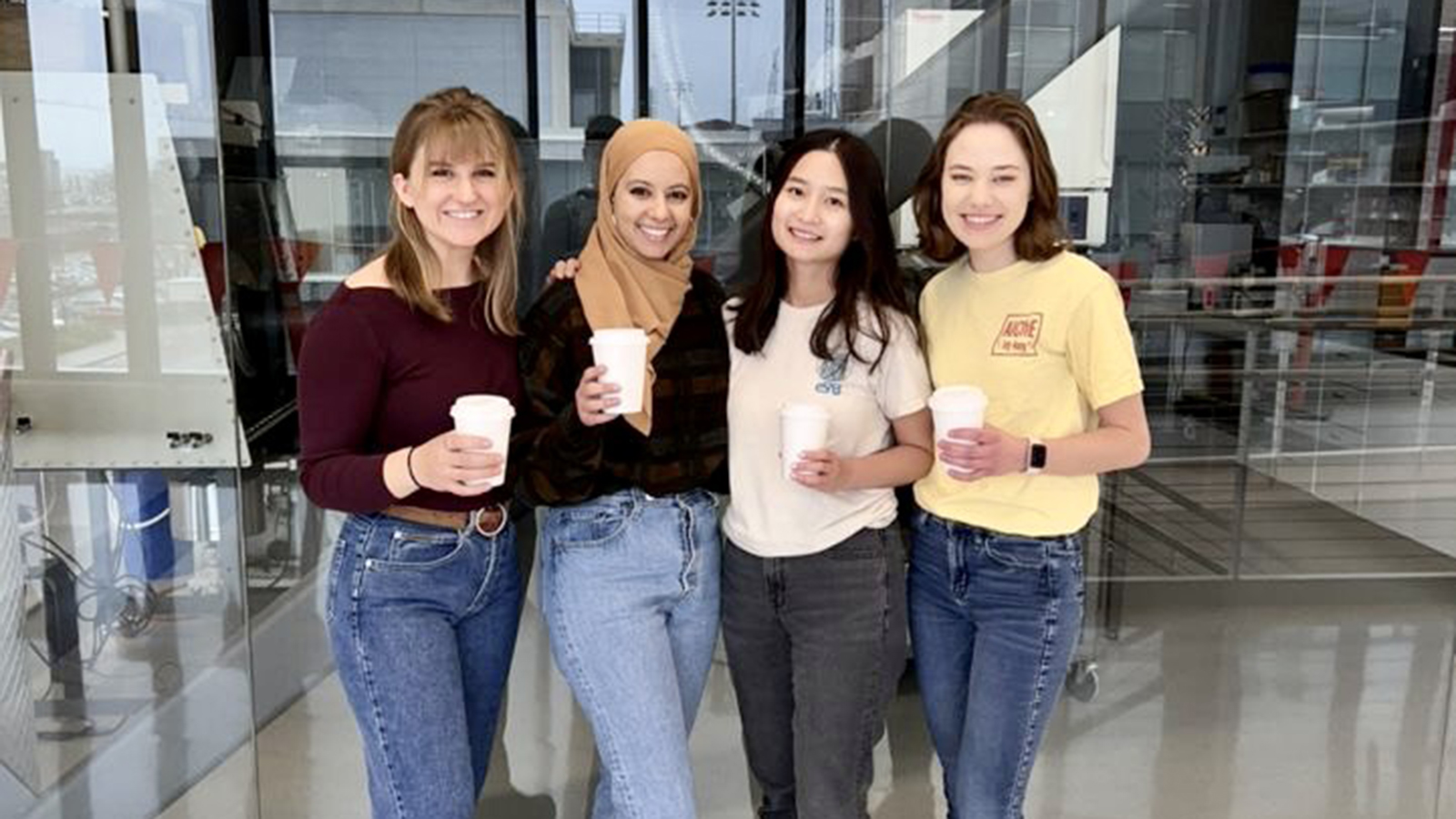Production of Biofuel from Spent Coffee Grounds
Chemical and Biomolecular Engineering
Team Members
Noha Algahimi, senior, chemical engineering
Nevaeh Hall, senior, chemical engineering
Xuan Le, senior, chemical engineering
Serena Tenhumberg, senior, chemical engineering
Faculty supervisor
Yasar Demirel
In this project, a team of chemical and biomolecular engineering capstone students is attempting to create a sustainably and economically sound green fuel from spent coffee grounds and analyze its feasibility.
Serena Tenhumberg discussed the team’s project and the senior design capstone process:
Q: How did this team come to be working on this project? Were you assigned by a faculty advisor or did you have to come up with the idea? If the latter, how did you learn about this need/issue/problem?
Tenhumberg: Out of a long list of available projects provided by Dr. Demirel, this project was chosen as we all care about sustainability
Q: Describe the work experiences that took you from the beginning (your first moments as a team) to where the project is now.
Tenhumberg: Throughout the course of the project, we learned how to use the ApenPlus program to design our plant. Furthermore, we learned how to optimize equipment such as distillation columns, heat exchangers, and reactors through a sensitivity analysis on various parameters.
Q: How will your design have an impact on people or the world?
Tenhumberg: Dimethyl Ether (DME) is a promising renewable alternative fuel. Compared to conventional diesel, DME reduces emissions of NOx, hydrocarbon, and carbon monoxide, making zero ozone effects. Additionally, according to the 2021 USDA Coffee: World Markets and Trade report, worldwide coffee consumption has reached 8.8 million metric tons and is leading to enormous amounts of organic waste. Through incorporation of coffee waste into our process as a hydrogen source, this waste accumulation could be depleted through DME production in addition to developing the use of coffee waste as a biomass.
Q: How has working on this project affected you and your decisions about the pathways you will take in engineering?
Tenhumberg: It has helped us all see how we could realistically contribute towards a more sustainable future with our knowledge of chemistry and engineering.
